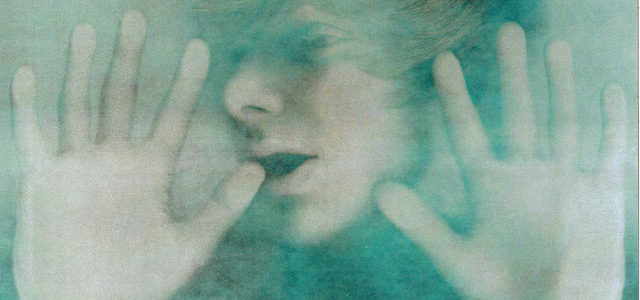Articles about Anxiety from Lori Calabrese, M.D. | The Ketamine Blog
When you feel that sense of dread or uneasiness about something in the present or in the future, that’s anxiety. Everybody feels that way at some point. An interview for a job, meeting your fiancee’s family, a major exam…. But for some people, the unpleasant dread can be overly intense and ongoing. When it’s so intense that it interferes with your life, causing you to miss work, or miss social opportunities… then it may be a disorder. These articles about anxiety shed light on the difference between moments of anxiety, and a lifetime with a severe, debilitating disorder.
Anxiety can be as mild as a transient feeling of butterflies, or so intense and overpowering you think you’re having a heart attack so you call 911.
Types of anxiety disorders:
1. Social anxiety
is the overpowering and relentless fear of being watched and judged by others. It can cause you to feel afraid to meet new people, to believe everyone in the room is talking about you, and to feel intensely self conscious in the presence of others. This is a serious mental health condition that can prevent you from interviewing for jobs or excelling at the one you have, or from meeting new people and building relationships.
2. Postpartum anxiety
This is emerging as a serious disorder in woman, at least as prevalent as postpartum depression. It can express symptoms like panic, fear of harming the baby, poor bonding with baby, obsessive worrying, inability to eat, sleep, or relax. Also, it can include the obsessive fear the panic will never resolve.
3. General anxiety disorder
obsessive and continuous worry about one’s health, work, social contacts and interactions, as well as daily routine circumstances and experiences…that repeat almost every day for at least six months.
4. Panic Disorder
Characterized by repeated and overwhelming panic attacks with accelerated pounding heart rate, sweating, trembling, shortness of breath, and feelings of impending doom. Often brought on by triggers, but not always. The attacks lead to a fear of the attacks, and a driving desire to avoid them, which can often lead to agoraphobia.
5. Test anxiety
Irrational dread of testing in spite of being well prepared. The anxiety can rise until the person’s displaying symptoms of panic like accelerated heart rate, headache, nausea and sweating. Can result in the mind going blank, and general functioning shuts down.
6. Phobia-related disorder
Agoraphobia – fear of enclosed public spaces, fear of open spaces
Arachnophobia – fear of spiders
Acrophobia – fear of heights
Dentophobia – fear of dentists
Claustrophobia – fear of enclosed, confined spaces
Aerophobia – fear of flying
Aquaphobia – fear of water
Zoophobia – fear of animals
Coulrophobia – fear of clowns – (not officially recognized but widely claimed)
7. Separation anxiety
Occurs in children and adults, and expresses as fear of being apart from people to whom they’re attached. They often worry that something terrible will happen to the person they’re connected to, and so avoid separation from that person as well as avoid being alone.
8. Selective mutism
A rare disorder in both children and adults where people don’t speak in specific situations, even though they have well developed language skills. It’s often associated with extreme shyness and fear of social embarrassment, and usually begins before the age of five.
9. Obsessive -Compulsive Disorder (OCD)
Considered to be connected to anxiety disorders, but there is controversy as to whether it belongs here. At the very least, that person who suffers from OCD has feelings of anxiety and usually feels powerless to control the intrusive thoughts they have, or their reaction to them.
This is not an exhaustive list, but rather examples of anxiety disorders.
Treatment of Anxiety Disorders
Some people suffer from a cluster of anxiety disorders and mood disorders combined, while some struggle with only one. Since anxiety disorders are best treated for the specific diagnosis, the more complex a person’s condition is, the more complex it may be to treat.
Transcranial Magnetic Stimulation (TMS)
demonstrates promising outcomes for some types of anxiety. Cognitive behavioral therapy shows the most promising outcomes as a form of psychotherapy. Psychotherapy combined with anxiolytic medicines, serotonin reuptake inhibitors (SRIs) and serotonin norepinephrine reuptake inhibitors (SNRIs) can be helpful, as well.
IV ketamine treatment has demonstrated favorable outcomes in some patients with some types of anxiety. Social anxiety can be debilitating and interfere with the desire to build life, family, and career. Ketamine treatment is one of the most effective treatments for social anxiety. There is exciting work being done with OCD patients and ketamine treatment also.
We invite you to continue reading the following articles about anxiety by Lori Calabrese, M.D.

Just because it feels natural…doesn’t mean it’s good for you Macie is a 32 year-old administrative assistant who feels growing tension when she leaves the house. She opens and closes the door, locks it then unlocks it, and opens and closes it again to be sure it’s latched. Then locks it… and unlocks it. It doesn’t […]
Continue Reading

I could use some of that. We hear that all the time. Relief, relaxation and relishing your life can sound so far away … but it doesn’t have to be. As word gets out about IV ketamine treatment for depression and other psychiatric mood disorders, more and more studies are emerging. New information is surfacing […]
Continue Reading

Ever have somebody copy you? You know, try to be like you? Imitate what you do, where you go? try to get what you have? They wannabe like you. Well, maybe not just exactly like you — kind of like you and better than you all at the same time. It’s happening with ketamine. We’ve been talking […]
Continue Reading

IV Ketamine and Treatment-Resistant Mood Disorders After reading today about a beautiful young man – let’s call him Tom – whose life ended tragically at the crossroads of despair, I started thinking. Like many of my own patients, he had a wondrously warm and giving heart — and a compassionate heart the size of Montana for […]
Continue Reading

Excitement about IV Ketamine Recently, I shared my perspective about the consensus statement released by the American Psychiatric Association’s Council of Research on Novel Biomarkers and Treatments Task Force. Their statement was about the use of IV ketamine for treating mood and other psychiatric disorders. That Task Force, in its consensus statement, assured members of the […]
Continue Reading

Do you know someone who’s been listless and hopeless for a really long time? More than weeks or even months … someone who’s been taking antidepressants for years, and has never really felt better? Have you noticed how years of despair affects a person’s outlook so deeply that their personality seems to change? Clare’s story Take Clare. […]
Continue Reading

JAMA: “Ketamine for Depression” Buzz The mental health community is all a-buzz about IV ketamine for treating depression and other psychiatric disorders, and for good reason. For the first time, people who’ve been treated without success for years are experiencing relief and enjoying their lives. For anyone who has suffered from psychiatric disorders without relief […]
Continue Reading

Ever notice how some people seem to collapse under an onslaught of traumatic experiences, and others almost seem to rise above them? Almost as if demonstrating their resilience? Why some people get PTSD and others don’t..that’s the question. People tend to say the latter type is “strong”… and the former type is weak…unable to withstand […]
Continue Reading

IV Ketamine Infusions Restore Jacob couldn’t remember the last time he was really at his best self. He’d struggled from day to day since he was about 4. Getting out of bed, getting dressed, and going to school, from first grade through high school… every day had been awful and just exhausting. As he got […]
Continue Reading

Shyness is a natural reticence to interact with people you don’t know. For those who are shy, it can be very painful and interfere with their social development. Introverted ? …or Shy? You may have heard it said that shyness is just introversion. But, this isn’t really true. An introvert may or may not be […]
Continue Reading









